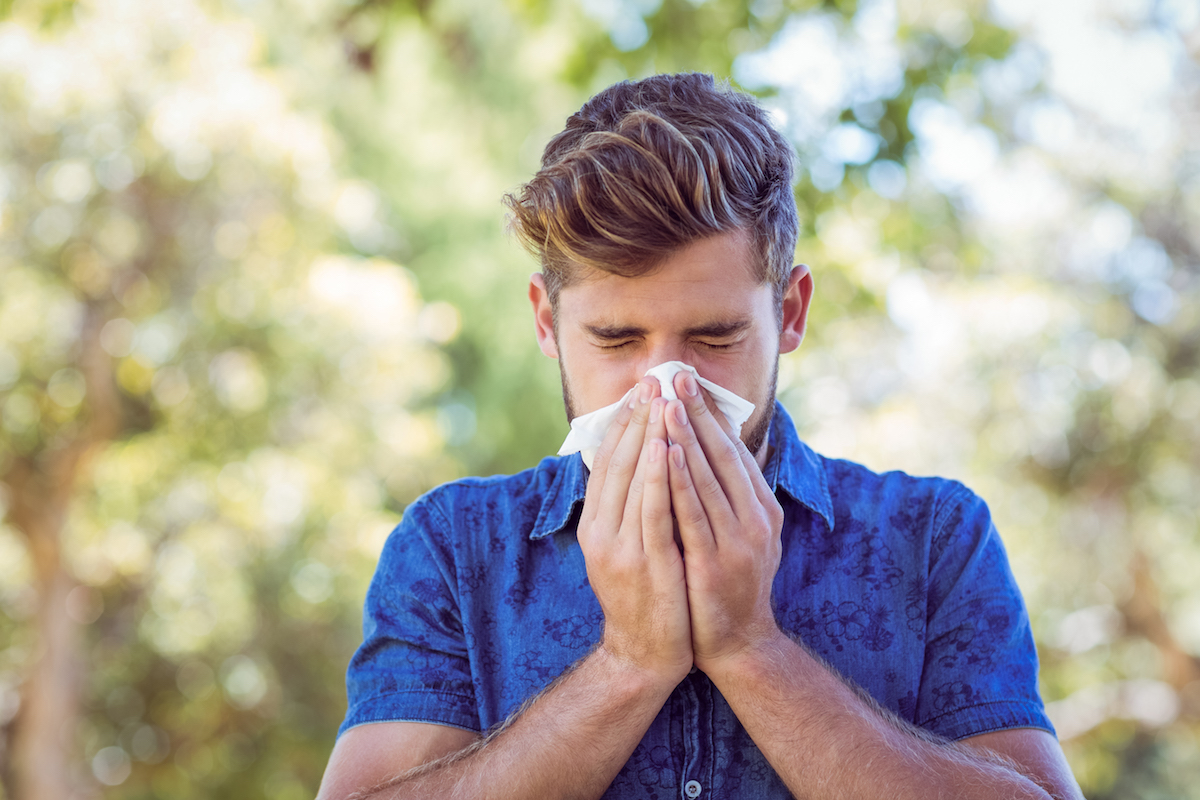At the start of 2017, norovirus, the awful vomiting illness commonly (and erroneously) referred to as the stomach flu, had its way with us: The Centers for Disease Control and Prevention reported this season that cases of the bug were up slightly over last season. Thankfully, peak season for both norovirus and influenza is coming to a close, but now we’re on the cusp of spring, which has many people wondering if their stuffy nose and cough is a sign of the common cold or an allergy flareup. We asked Dr. Shradha Agarwal, assistant professor of clinical immunology at Mount Sinai Health System, to help us figure out the difference, and let us know what we can do to protect ourselves when allergies do strike. How can you tell if you have a cold or allergies? What are the most common allergies in the U.S.? About how many people suffer from the most common allergies? What can be done to manage allergies? Another option is allergy immunotherapy which can be given by injection or orally. This treatment, given over several years, desensitizes you to allergens to reduce allergy and asthma symptoms. This is a useful treatment particularly for someone who is sensitized to many allergens, finds it difficult to avoid their triggers or cannot tolerate medications used to treat symptoms. An allergist can discuss with you which treatment would be best. What about managing pollen allergies, specifically?
Sometimes, particularly in the winter months, it’s difficult to distinguish between allergies and the common cold since the symptoms may be similar: congestion, runny nose, cough, fatigue.Symptoms can be intermittent if the exposure to the allergen is episodic, such as visiting a friend with a dog. If your symptoms are persistent for more than two weeks, you should visit an allergist.
The most common environmental triggers are pollens, dust mites, animal dander, rodents and molds. Allergic rhinitis symptoms can be severe enough to contribute days lost from work/school.
The true incidence of allergic rhinitis is underestimated, since many remain undiagnosed or are self-treated, but it is estimated to affect between 10-30 percent of the population worldwide.The prevalence has been steadily increasing.
Prevention strategies depend on the type of allergen and degree of exposure. For dust-mite allergies, [treatment involves] using impermeable mattress and pillow encasements, washing linens and vacuuming regularly. Chemicals to kill dust mites require frequent applications and exposure to harmful substances and not recommended. Animal dander adheres to clothing, furniture, walls and can remain airborne for long periods of time. Keeping pets out of the bedroom and, using HEPA filtration may help.
It is more challenging to avoid pollens since we spend a lot of time outdoors. Some tips include staying indoors when pollen counts peak, usually midmorning, and when windy conditions stir pollen into the air. Local pollen counts can be monitored online during pollen seasons. Wear sunglasses when outdoors to reduce the amount of pollen getting into the eyes; use a mask if you have to mow the lawn or do gardening. Wash your face, hands and hair if you’ve been exposed.
Ask Mount Sinai: Is it allergies or a cold?

ISTOCK
















